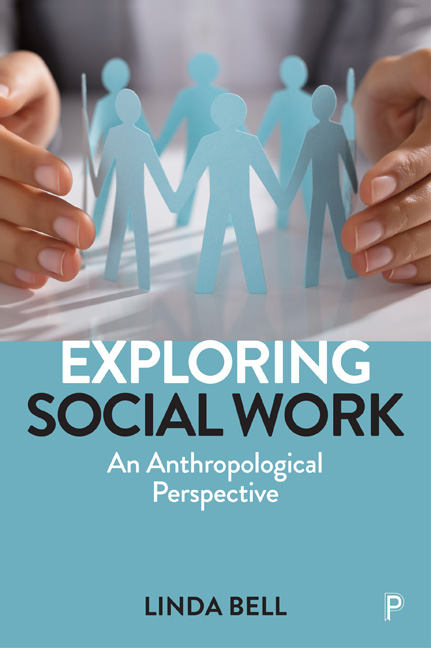Book contents
- Frontmatter
- Dedication
- Contents
- Acknowledgements
- Preface
- 1 Introducing Social Work: Who are Social Workers? Why do we Need Them?
- 2 Getting Involved: An Anthropological and Auto-Ethnographic Journey
- 3 Time and Change: UK Social Work and Comparative European Welfare Policies Since 1990
- 4 Becoming: Being Admitted, Educated and Trained in Social Work
- 5 Growing: Experiencing Social Work Education and Socialisation
- 6 Identifying
- 7 Valuing and Transgressing
- 8 Relating and Partnering: Social Workers, Clients/Service users and other Professionals
- 9 Knowing and Evidencing: Building a Research Base, Mapping and Modelling
- 10 Organising: Influences of the state, Organisations and Wider Social Policies
- 11 Symbolising: Cultural Representations in Theory and in Practice
- 12 Changing: The Future – Social Work in Wider Society
- References
- Index
8 - Relating and Partnering: Social Workers, Clients/Service users and other Professionals
Published online by Cambridge University Press: 04 March 2021
- Frontmatter
- Dedication
- Contents
- Acknowledgements
- Preface
- 1 Introducing Social Work: Who are Social Workers? Why do we Need Them?
- 2 Getting Involved: An Anthropological and Auto-Ethnographic Journey
- 3 Time and Change: UK Social Work and Comparative European Welfare Policies Since 1990
- 4 Becoming: Being Admitted, Educated and Trained in Social Work
- 5 Growing: Experiencing Social Work Education and Socialisation
- 6 Identifying
- 7 Valuing and Transgressing
- 8 Relating and Partnering: Social Workers, Clients/Service users and other Professionals
- 9 Knowing and Evidencing: Building a Research Base, Mapping and Modelling
- 10 Organising: Influences of the state, Organisations and Wider Social Policies
- 11 Symbolising: Cultural Representations in Theory and in Practice
- 12 Changing: The Future – Social Work in Wider Society
- References
- Index
Summary
Relationships are important to all of us, but what about social workers? From my discussions so far, we can see that ‘relationship’ and ‘relationships’, as well as ‘partnership(s)’, are very important concepts to social work and social workers. In this chapter, I want to explore further what some of the social workers I interviewed say about these concepts, and how they explain their significance to social work. I will also draw upon some of my own social work-based research to illustrate ‘relating’ and ‘partnering’ in practice.
In Chapter 1, I acknowledged that, in very basic terms, some kind of relationship between those who provide social work and those who receive it is surely a (complex) cornerstone of all social work discourses and practices. This also implies the involvement of emotions, however those are defined or assessed (see, for example, Howe, 2008). The relationships that social workers have with their service users or ‘clients’, their colleagues, other professionals, and any other people with whom they come into contact are surely an important part of the overall picture.
We would expect a focus on relationship(s) to apply in these professional contexts, but for those who have been motivated to train and to work in social work and related occupations, this concept may also resonate personally in ways that could be different from those who are not social workers. For example, we could ask whether social workers view emotions in particular ways? Beatty (2013) discusses the ways in which anthropologists have studied emotions in various settings; using examples mainly from what he terms ‘traditional’ social settings, he critically reviews whether researchers have been able to cross-culturally define what exactly emotions are.
We have already seen in earlier chapters that the anthropologist Byron Good suggests that doctors construct a view of the body that ‘sees’ it differently from those who have not had medical training. Do those who have been educated and trained to construct particular (culturally based) views of relationship(s) and emotions (including social workers) therefore claim to understand them differently to other people? Does constructing a ‘professional’ view of relationship(s), informed by various levels of theory, provide someone with a deeper or more complete view?
- Type
- Chapter
- Information
- Exploring Social WorkAn Anthropological Perspective, pp. 105 - 120Publisher: Bristol University PressPrint publication year: 2020

